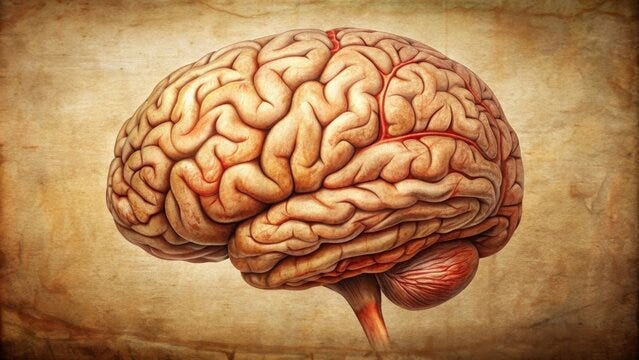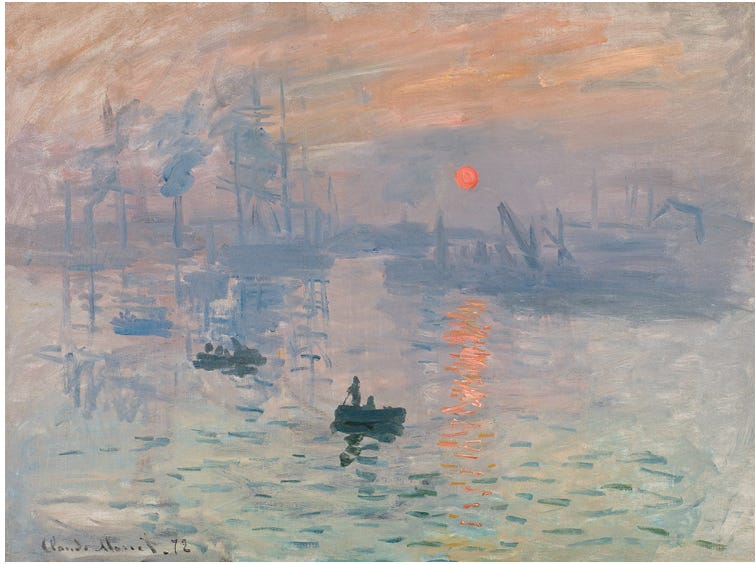The more time you devote to engaging your brain, the more it benefits.
Your activity should require some level of constant practice, but the goal is not to strive for vast improvements. It's the constant repetition of working to improve, and not the quest for mastery, that can have the greatest impact. (Harvard Health, July 20, 2024)
You know those regrets you have sometimes?
One of mine was: I wish I could re-do college and do it better. Let’s just say, my first college stint was rich with experiences but I did not emerge with a transcript to be proud of.
So, when I decided to earn my teaching credentials, I got that rare chance to reverse a regret and do college better. I emerged with confidence and a love for learning that I still carry with me.
Eventually, though, after a Master’s Degree, an aborted attempt at a Ph.D. and a year-long certificate program, I was DONE sitting in a classroom or lecture hall: finding parking, buying the books, reviewing the syllabus, joining a study group — my palms are sweating just thinking about it. And I don’t think I’m alone.
Traditional classroom life is not for everyone. I teach in an on-line high school with an enrollment of 14,000. That’s a lot of students who have opted for distance learning rather than traditional brick-and-mortar lessons.
Today, I always seek out a virtual option when I’m looking for a lecture or a performance. We all learned during COVID the benefits of snuggling up at home compared to venturing out into the great big (and sometimes expensive) world.
I’m not turning into a Scrooge-like humanity hater, I’m just done with taking notes with my butt settled in a hard plastic seat.
Do we need to keep learning as we grow older?
Absolutely yes.
Here’s why: we are all clinging to our cognitive health by our fingernails. We know people who are succumbing to early forms of dementia or even Alzheimer’s Disease. When my friend asked a doctor about his spouse’s possible neurological disorder, the doctor said, “once it starts, there’s nothing we can do to stop it.” Doesn’t that send a chill through you?
When you keep learning, whether it be a skill or an idea, you continue to stimulate new neural connections and pathways in the brain. It’s like exercise for your mind; it improves your memory and slows the normal age-related mental decline. Wanna see two neurons connect? Watch this.

And the good new is: the internet has made it increasingly possible to take WORLD CLASS courses — mostly for FREE — from the comfort of your home, treadmill, or smart phone. Here are some great ones:
Learn Economics from a former Labor Secretary
Robert Reich served in the Ford, Carter, and Obama administrations. He was Bill Clinton’s Labor Secretary from 1993 to 1997 and has written a half-dozen books. Reich taught at Harvard, Brandeis, and University of California at Berkeley where he retired in 2023, but not before filming his final semester of a course entitled “Wealth and Poverty.”
It is well-produced and expertly taught (I aspire to be as effective and compassionate a lecturer as Reich) and will open your eyes about the political, financial, and social aspects of our economy. And you’ll save about $750 per credit hour!
Reich is also a talented cartoonist and uses his sense of humor and energy to liven up his writing and videos. He has 500,000 subscribers on Substack at @robertreich.



Our Crazy Present Day Explained by a Historian
The most popular Substacker is Heather Cox-Richardson, whose daily “Notes from an American” newsletter took off during the pandemic and has about a million subscribers. A professor at Boston College, she has also taught at MIT and the University of Massachusetts at Amherst.
Cox-Richardson takes a no-nonsense approach to modern life in America and explains them with deep context. There is no better “sense maker” around.
She recently explained the history of US voter suppression with 7,000 (!) viewers during a live stream with the political activist group, “Red, Wine, and Blue.” In the spirit of the group’s name, grab a glass of your favorite beverage and enjoy.
Free Tools to Build Your Financial Future
Can you believe Khan Academy is almost 20 years old? They offer a free, top-notch education and now a new choice: a course on Personal Finance. Back in the hippy-dippy days of the 1970s, we had a class like this called Consumer Education, but it is long gone.
So, you might have missed the lesson that explained compound interest. Or maybe you need to do some financial planning for college, buy a house, start investing? All of that is covered.
I can vouch for KA. I had to sub for a Biology teacher last year and their classes saved my life. And when I taught at a well-respected international school, many of the math teachers relied on Khan Academy for teaching and enhancing their lessons. These are not dumbed down.
Political Reality Lessons
Last week, I attended (from home) a public lecture by Dr. Jake Grumbach, who explained how our political system actually works, often allowing minority special interest groups to overtake our politics and law-making. His topics included gerrymandering, single legislator districts, and the Electoral College.
The lecture is courtesy of the University of Washington, where Grumbach used to teach. He is now at the University of California at Berkeley. Lucky students. He obviously loves his subject matter.
I have a B.A. in political science and this stuff blew my mind. Grumbach, the author of Laboratories Against Democracy, is not a pundit. He is a professor explaining how things work, allowing us to see obstacles as well as potential opportunities for political action. I promise this lecture will open your eyes.
Behind the Music
My brother is a crazy audiophile and fascinated by the inner workings of popular music. He discovered Rick Beato on You Tube, shared a few links with me, and I became a fan, too.
His You Tube Channel is a treasure trove of interviews, analysis, and criticism of everything from the blues to jazz to electronica with rock-and-roll in between.
My favorite so far: an interview with songwriter Jimmy Webb.
A Good Impression
We always hear about “The Impressionists” — that school of art that went from an earth-shaking culturral revolution to popular monthly calendar art to sure-fire sales machines for art museums.
But who are they really? How did the movement start? What does it mean to be “an Impressionist?”
The National Gallery of Art is currently presenting “Paris 1874: The Impressionist Moment” through January 2025. And thanks to their rich website, you can see more than 40 of the paintings in the exhibit, watch videos, read articles, and do a “deep dive” into the subject.
One highlight, Claude Monet’s painting, “Impression, Sunrise” that gave the movement its name (see above), is being shown for the first time in the United States at the NGA show.
You’ll save the $65 admission fee and a trip to Washington, D.C. on this one.
Chill Out
I’m not sure why, but whenever I teach U.S. History, students are always interested in the The Cold War. They want to know about it, they want to write about it, and they love the whole “Space Race” part.
There is no better source out there right now than “Turning Point: the Bomb and the Cold War” on Netflix. This nine-part docuseries connects the dots between post WWII America’s relationship with the USSR and today’s complicated entanglements with Russia.
Created by journalists and academics, it gets the facts straights and keeps you on the edge of your seat, even though you know how it turns out.
OK, this is not free. It requires a Netflix subscription, but it’s cheaper than a textbook.
And There’s More!
I haven’t mentioned History Hit on You Tube, chocked full of passionate and knowledgeable scholars talking about world history from ancient times to today.
And don’t miss all of the Crash Course videos. The Green brothers (John and Hank) have created a treasure trove of lessons covering science, history, literature, and even public health! They go fast, so pay attention. If you haven’t seen Crash Course yet, your kids definitely have. It’s a classroom mainstay.
What about you? Do you have any courses or workshops or lectures to recommend? Share them in the comments section.
Thank you for reading the “Good to Know” newsletter! I publish three times a week including an in-depth “Sunday Brunch” feature like this one.
See you Tuesday!
Not ready to commit to a subscription, paid or free?







Nice piece, Kelly. We have a lot in common. I also loved graduate school after having a lax undergraduate experience. It was ten years later so I had grown up enough to realize how fortunate I was to be there. I also discovered Beato a few years ago and I loved his stuff for a while but I think he's lost his mojo. He seems to lose the thread a lot lately, and spends way too much time promoting his merch.